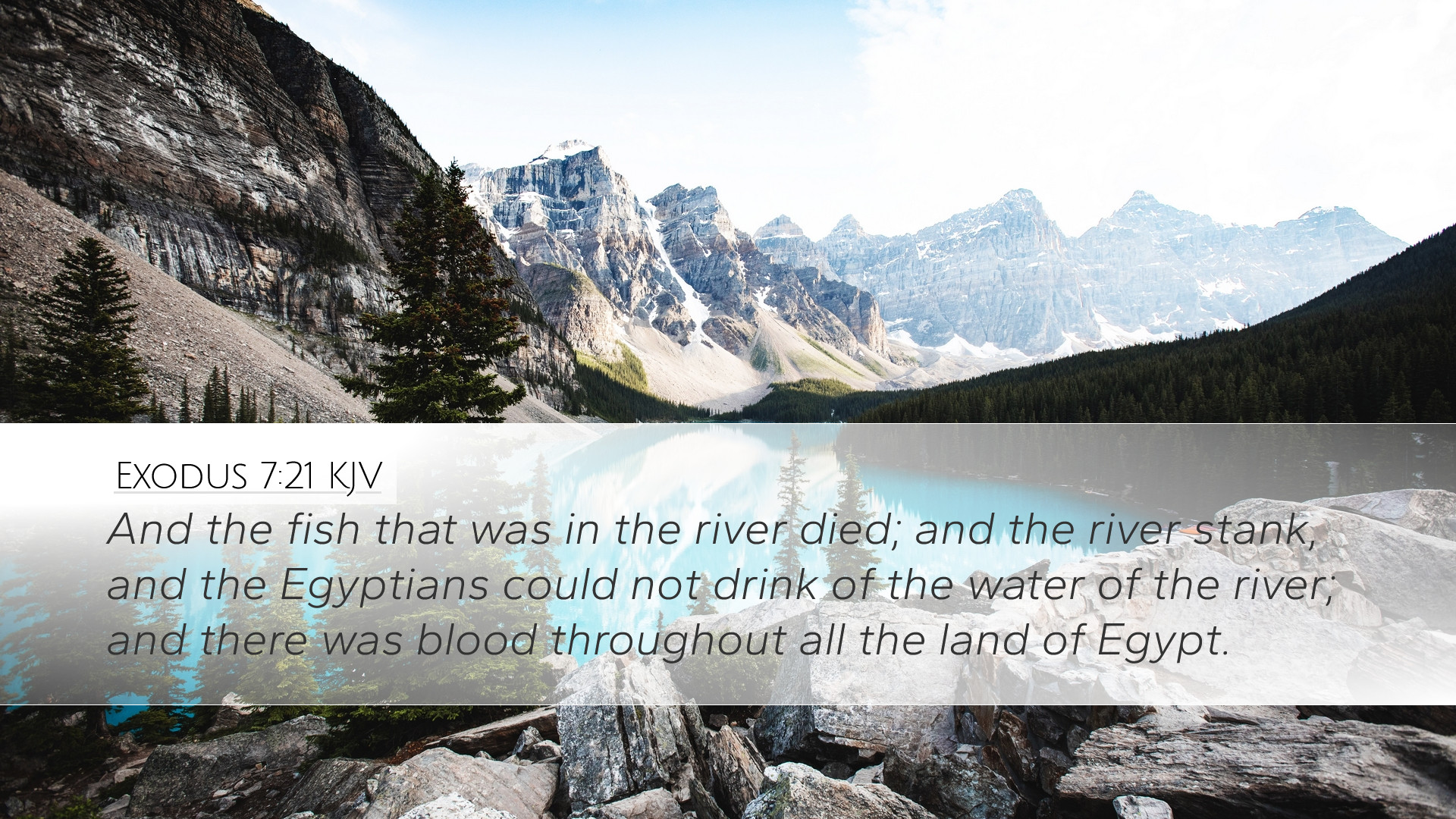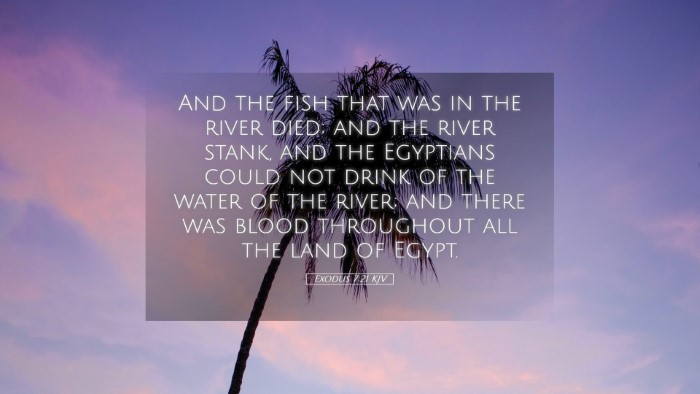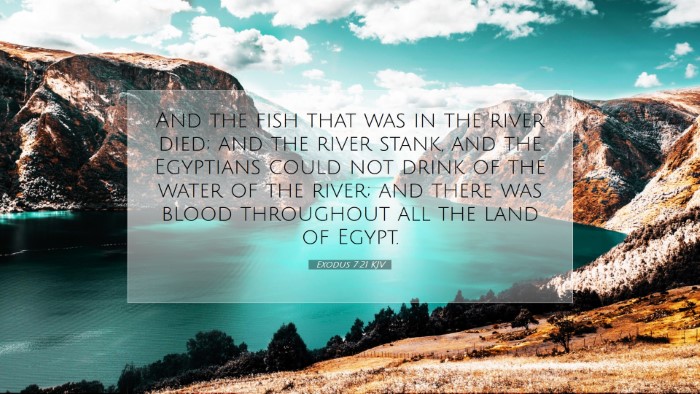Exodus 7:21 Commentary
Bible Verse: "And the fish that was in the river died; and the river stank, and the Egyptians could not drink of the water of the river; and there was blood throughout all the land of Egypt." (Exodus 7:21)
Introduction
The verse from Exodus 7:21 marks a significant moment in the narrative of the plagues that God sent upon Egypt as a demonstration of His power and a direct challenge to the authority of Pharaoh and the Egyptian gods. This commentary seeks to delve deeper into the implications, theological significance, and historical context of this verse by drawing on insights from public domain commentaries by notable theologians like Matthew Henry, Albert Barnes, and Adam Clarke.
Theological Implications
The Symbolism of Blood: The transformation of the Nile into blood carries profound theological symbolism. Blood is often seen throughout Scripture as a symbol of life and death. In this instance, the Nile, which was vital for life in Egypt, is turned into a substance associated with death. According to Albert Barnes, “the Nile being the source of sustenance for the Egyptians signifies that their livelihood is being threatened.” This act was not only a judgment but a display of God’s ability to control the forces of nature.
God's Sovereignty: Matthew Henry states that the turning of water into blood is indicative of God’s sovereignty over creation. The Egyptians worshiped the Nile as a deity, and this plague served as a direct affront to their idolatry. Henry posits that “God expresses His displeasure against idolatry and teaches the Egyptians of His power and authority.” This event emphasizes how the true God can control the very elements that the false gods could not.
Historical Context
The River Nile's Importance: The Nile River was central to Egyptian civilization, serving as a source of transportation, irrigation, and food supplies. Adam Clarke notes that “the Egyptians were entirely dependent on the Nile for their agricultural practices and daily life.” The plague illustrates how God attacks the very foundation of Egyptian society, revealing the futility of reliance on false gods.
The Plague's Effects
- Environmental Impact: The death of the fish signifies not just a loss of life but the disruption of the ecosystem. The Nile’s transformation into blood meant that attempts to fish or take water became impossible, leading to economic and social distress.
- Public Health Crisis: As indicated in the text, the Egyptians could not drink the water from the Nile, leading to a significant public health crisis. Barnes explains that “the stench from the dead fish would lead to widespread sickness, further compounding the disaster.”
- Symbol of Judgment: The stench and decay symbolize God’s judgment on the Egyptians for their oppression of Israel. Matthew Henry reiterates that "the foulness of the river is emblematic of the corrupt state of a nation that has turned against God's chosen people."
Lessons for Today
The narrative of the plagues continues to offer lessons for contemporary faith communities. The demonstration of God’s power against false deities serves as a reminder to believers about the danger of idolizing any aspect of creation over the Creator. Clarke encourages us to “maintain a perspective of God's sovereignty in every facet of life, recognizing that He can and will intervene to demonstrate His authority.”
Devotional Reflections
When reflecting on Exodus 7:21, pastors and scholars alike are invited to consider the nature of God’s interventions in our lives. Just as God intervened in Egypt, He is capable of transforming circumstances that seem impossible to change. As we face our own 'Nile' moments, it is crucial to remember His past faithfulness and authority.
Conclusion
Exodus 7:21 serves not only as a historical account of God’s judgment in Egypt but also as a profound theological lesson demonstrating God’s control over creation, the futility of idolatry, and the seriousness of sin. By learning from this passage and its implications, pastors, theologians, and students can gain deeper insights into God’s character and the relevance of Scripture in our lives today.


